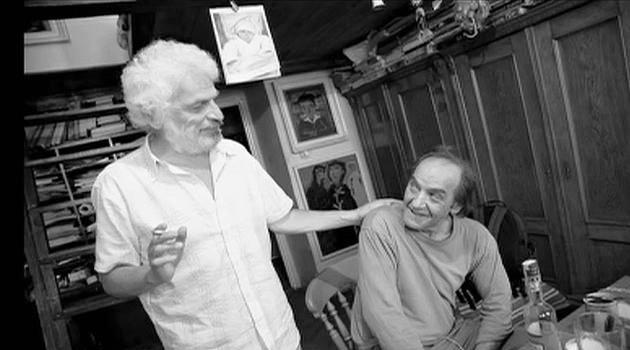Slovak capital distances itself from the Fascist past with a flag and a march

On 14 March a flag featuring a crossed-out Nazi swastika flew over the office of the mayor of Bratislava to symbolize that the Slovak capital is a city of peace and tolerance. The flag was flown all weekend.
The TASR agency reports that Ľubomír Andrassy, director of the mayor’s office, announced the symbolic gesture to the press. Friday also marked a sad 75th anniversary for Slovakia, that of the declaration of the WWII-era Fascist state led by Jozef Tiso.
Andrassy said the city leaders wanted to take advantage of the occasion to make it clear that they distance themselves from all manifestations of extremism, Fascism, intolerance, and racism. On Saturday an anti-Fascist assembly was held at 14:00 on Slovak National Uprising Square in the center of the capital, followed by a march through the streets of the city.
The square in front of the Presidential Palace was first occupied on Saturday by sympathizers of the event, called "Fascism Does Not Belong in Slovakia" (Fašismus nepatří na Slovensko). After they set out on their march, the square was filled with young people from the ultra-right who came to commemorate the anniversary of the creation of the First Slovak Republic.
Slovak law does not permit two events to be held in the same place at the same time. The anti-Fascists therefore reserved the square not just for last weekend, but also for next weekend.
Right-wing extremists annually hold a march in Bratislava to Tiso’s tomb on 14 March. Police, concerned that there might be clashes between the opponents and proponents of the pro-Fascist state, called about 500 officers in to patrol the streets.
No clashes were reported. Police detained six people on suspicion of misdemeanors.
The "Fascism Does Not Belong in Slovakia" event was supported by people of all ages carrying flowers, including former dissident Fedor Gál, the artist Fero Guldan, and director Dušan Trančík. As a former head of state, Tiso is one of the most controversial personalities in modern Slovak history.
While Tiso is considered by some to be a martyr who managed to ensure his nation its own independent state, for others he remains a representative of an authoritarian regime that sent thousands of Jewish citizens to their deaths. The First Slovak Republic, which Tiso initially led as prime minister and then as president after 26 October 1939, was a de facto vassal state to Nazi Germany; this was most obvious from its foreign policy, which was completely subordinated to Berlin’s interests.